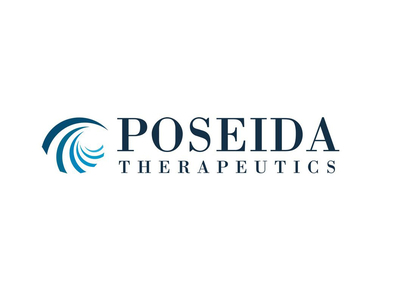Poseida Therapeutics and TScan Therapeutics Announce Research Collaboration and License Agreement to Explore Developing Allogeneic T Cell Receptor Therapies for the Treatment of COVID-19
Poseida Therapeutics (NASDAQ:PSTX) has entered a research collaboration and license agreement with TScan Therapeutics to develop T cell receptor (TCR) therapies for COVID-19 treatment. The partnership combines Poseida's allogeneic T cell platform with TScan's TCR findings from convalescent patients. They aim to create cell-based therapies targeting patients with inadequate T cell responses. The agreement grants Poseida access to TScan's TCR data and expertise, although specific financial terms remain undisclosed.
- Collaboration with TScan enhances Poseida's T cell therapy capabilities.
- Potential for developing effective therapies for COVID-19 and other infectious diseases.
- Access to TScan's TCR data and expertise may accelerate research efforts.
- Detailed financial terms of the collaboration were not disclosed, causing uncertainty.
- Risks associated with the development and regulatory approval of novel therapies may impact timelines.
SAN DIEGO and WALTHAM, Mass., Oct. 21, 2020 /PRNewswire/ -- Poseida Therapeutics, Inc. (NASDAQ:PSTX), a clinical-stage biopharmaceutical company utilizing proprietary gene engineering platform technologies to create cell and gene therapeutics with the capacity to cure, and TScan Therapeutics, Inc., a biopharmaceutical company focused on the development of T cell receptor (TCR)-engineered T cell therapies in oncology, today announced a research collaboration and license agreement to explore developing TCR-T cell therapies for the treatment of COVID-19. Poseida's allogeneic T cell platform will be used in combination with TScan's discovered immunodominant epitopes and TCR sequences for the development and commercialization of allogeneic TCR-T cell therapies.
"The TScan relationship will allow us to expand our platform and T cell experience, utilizing one or more TCRs in allogeneic cell therapy applications," said Devon Shedlock, Ph.D., Senior Vice President of Research and Development for Poseida. "We are impressed by TScan's novel platform for the discovery of TCRs. This, coupled with the opportunity to explore our allogeneic T cell platform's potential for also treating diseases outside of oncology, including COVID-19 and eventually other infectious diseases, represents an exciting and differentiated approach."
"Therapeutic strategies to treat COVID-19 have largely focused on neutralizing antibodies that block viral infection or small molecule drugs that inhibit viral replication," said Gavin MacBeath, Ph.D., Chief Scientific Officer at TScan. "We are excited about the possibility of combining our SARS-CoV-2 TCR findings with Poseida's allogeneic T Cell approach to explore a potential cellular therapy for patients with COVID-19. We look forward to collaborating with the Poseida team on this approach."
Emerging studies suggest that patients who fail to mount effective T cell responses often end up with more severe and life-threatening disease. Administering virus-specific engineered T cells may provide a rapid and effective way to address this deficiency. Results from TScan demonstrate that generating a memory T cell response targeting specific proteins may be important for fighting the virus and for long-term immunity. Combining these findings with Poseida's off-the-shelf allogeneic T cell product approach, which has generated a very high percentage of stem cell memory T cells (Tscm) and has the potential to yield hundreds of doses from a single manufacturing run using proprietary booster molecule technology, may provide both an immediate therapeutic effect, as well as longer-term immunity.
TScan recently announced data generated by their TCR/Target Discovery platform identifying the precise targets of T cells isolated from COVID-19 convalescent patients, along with the TCRs that recognize them. A core set of targets were shared among patients with the same human leukocyte antigen (HLA) type and were primarily located outside the spike protein. A paper describing this work is currently in press at Immunity, a Cell Press journal. TScan worked with clinical partner Atlantic Health Systems to recruit recovering COVID-19 patients for this work. Combining these findings with Poseida's off-the-shelf allogeneic T cell product platform may provide an accessible cell-based therapy for patients with insufficient T cell responses.
Under the terms of the Agreement, Poseida will gain access to TScan's data and IP related to TCR sequences and targets potentially valuable in treating COVID-19, and TScan will provide TCR expertise and counsel to the research collaboration. Detailed financial terms of the collaboration were not disclosed.
About Poseida Therapeutics, Inc.
Poseida Therapeutics is a clinical-stage biopharmaceutical company dedicated to utilizing our proprietary gene engineering platform technologies to create next generation cell and gene therapeutics with the capacity to cure. We have discovered and are developing a broad portfolio of product candidates in a variety of indications based on our core proprietary platforms, including our non-viral piggyBac® DNA Modification System, Cas-CLOVER™ site-specific gene editing system and nanoparticle- and AAV-based gene delivery technologies. Our core platform technologies have utility, either alone or in combination, across many cell and gene therapeutic modalities and enable us to engineer our wholly-owned portfolio of product candidates that are designed to overcome the primary limitations of current generation cell and gene therapeutics.
About TScan Therapeutics
TScan discovers and develops transformative T cell therapies (TCR-T) to treat liquid cancers, solid tumors, and other serious diseases. Our proprietary, high-throughput platform identifies previously uncharacterized, clinically-derived shared T cell antigens and all off-target TCR interactions, to enable the development of highly efficacious TCR-Ts with minimal off-target effects. Lead program TSC-100 is expected to enter clinical development for liquid cancers in 2021, and the Company is advancing additional TCR-Ts for solid cancers. TScan was co-founded by Chair Christoph Westphal (Partner, Longwood Fund) based on pioneering research from the Elledge Lab at Brigham and Women's Hospital. The Company has raised over
Forward-Looking Statements
Statements contained in this press release regarding matters that are not historical facts are "forward-looking statements" within the meaning of the Private Securities Litigation Reform Act of 1995. Because such statements are subject to risks and uncertainties, actual results may differ materially from those expressed or implied by such forward-looking statements. These forward-looking statements are based upon Poseida's current expectations and involve assumptions that may never materialize or may prove to be incorrect. Actual results could differ materially from those anticipated in such forward-looking statements as a result of various risks and uncertainties, which include, without limitation, risks and uncertainties associated with development and regulatory approval of novel product candidates in the biopharmaceutical industry and the other risks described in Poseida's filings with the Securities and Exchange Commission. All forward-looking statements contained in this press release speak only as of the date on which they were made. Poseida undertakes no obligation to update such statements to reflect events that occur or circumstances that exist after the date on which they were made, except as required by law.
![]() View original content to download multimedia:http://www.prnewswire.com/news-releases/poseida-therapeutics-and-tscan-therapeutics-announce-research-collaboration-and-license-agreement-to-explore-developing-allogeneic-t-cell-receptor-therapies-for-the-treatment-of-covid-19-301156338.html
View original content to download multimedia:http://www.prnewswire.com/news-releases/poseida-therapeutics-and-tscan-therapeutics-announce-research-collaboration-and-license-agreement-to-explore-developing-allogeneic-t-cell-receptor-therapies-for-the-treatment-of-covid-19-301156338.html
SOURCE Poseida Therapeutics, Inc.
FAQ
What is the collaboration between Poseida Therapeutics and TScan Therapeutics about?
What is Poseida's role in the partnership with TScan?
What potential benefits does this collaboration bring for COVID-19 treatment?
What specific technologies will be combined in this research collaboration?







